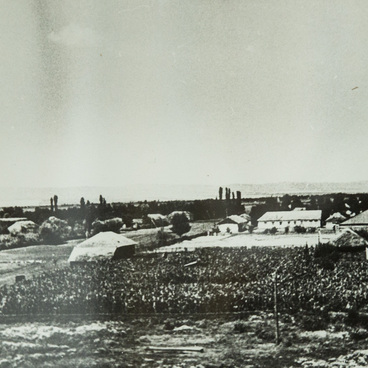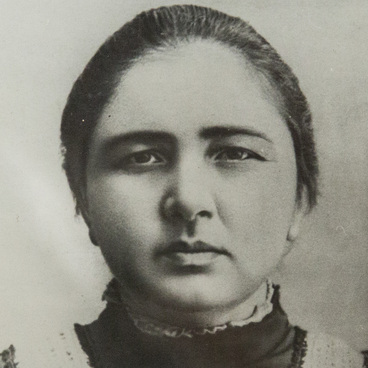Gigo (Grigory) Dzasokhov was born into a peasant family on August 14th, 1880 in the village of Georgievsko-Osetinskoe, which today is the village named after Kosta Khetagurov. In 1895, he graduated from the Maykop Municipal School, after which he entered the Ardon Theological Seminary.
In 1901, after completing his education, Dzasokhov took a position as a literature teacher at the Vladikavkaz Realschule, but soon afterwards, at the recommendation of the Ardon Theological Seminary, he was enrolled in the Kazan Theological Academy.
Dzasokhov graduated from the academy with a doctorate in theology and returned to his former place of work in Vladikavkaz. During this time, he began to publish his articles in both local periodicals and the capital’s. Thus, his notes regularly appeared on the pages of the “Saint Petersburg Statements”.
In 1905, Dzasokhov became the editor of the first and only issue of the Vladikavkaz social-democratic newspaper “Iskra”, for which he was exiled from the city.
Gigo Batcherievich highly appreciated Kosta Khetagurov’s work. In 1909 in Rostov-on-Don, he prepared and published at his own expense a collection of the poet’s works in Russian. In the book, he brought together poems by Kosta Levanovich, his biography, and photographs. Dzasokhov never claimed in his work that he was able to give an exhaustive characterization of Khetagurov’s work, and he always emphasized this. He rightly believed that it was a matter for ‘the future historians of Ossetia’s intellectual society’, and prophetically argued that “if you are ever going to develop Ossetian literature, then Kosta”s poems will take the place of honor”.
In 1917, Dzasokhov became the director of the schools in his native village. He spent the final year of his life in Georgievsko-Osetinsky and died on October 18th, 1918.
In 1970, Professor Khazbi Bulatsev of the Leningrad State University published a posthumous collection of articles and essays by Grigory Dzasokhov in the Vladikavkaz publishing house “Ir”, which became the first literary material on his journalism.
In 1901, after completing his education, Dzasokhov took a position as a literature teacher at the Vladikavkaz Realschule, but soon afterwards, at the recommendation of the Ardon Theological Seminary, he was enrolled in the Kazan Theological Academy.
Dzasokhov graduated from the academy with a doctorate in theology and returned to his former place of work in Vladikavkaz. During this time, he began to publish his articles in both local periodicals and the capital’s. Thus, his notes regularly appeared on the pages of the “Saint Petersburg Statements”.
In 1905, Dzasokhov became the editor of the first and only issue of the Vladikavkaz social-democratic newspaper “Iskra”, for which he was exiled from the city.
Gigo Batcherievich highly appreciated Kosta Khetagurov’s work. In 1909 in Rostov-on-Don, he prepared and published at his own expense a collection of the poet’s works in Russian. In the book, he brought together poems by Kosta Levanovich, his biography, and photographs. Dzasokhov never claimed in his work that he was able to give an exhaustive characterization of Khetagurov’s work, and he always emphasized this. He rightly believed that it was a matter for ‘the future historians of Ossetia’s intellectual society’, and prophetically argued that “if you are ever going to develop Ossetian literature, then Kosta”s poems will take the place of honor”.
In 1917, Dzasokhov became the director of the schools in his native village. He spent the final year of his life in Georgievsko-Osetinsky and died on October 18th, 1918.
In 1970, Professor Khazbi Bulatsev of the Leningrad State University published a posthumous collection of articles and essays by Grigory Dzasokhov in the Vladikavkaz publishing house “Ir”, which became the first literary material on his journalism.



